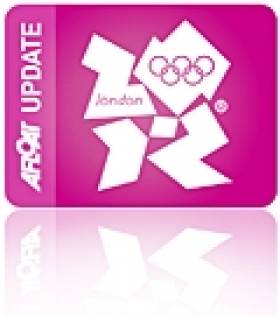Displaying items by tag: Procedure
Trials Announced for London Olympic Selection
Trials at Holland regatta and at Weymouth this year will be the focus for Olympic campaigners this season. The new procedures released by the Irish Sailing Assocaition are set out in the attachments below and
2011 is going to be a critical year for Ireland's Olympic Campaigners. First there is the matter of winning the nomination to be put forward to the OCI and secondly there is the task of qualifying the nation for the Olympics.
The nomination trials are to be held in Europe while the main Olympic nation qualifier is in Perth, Australia in December 2011.
Irish Sailing Association - Nomination Procedures for the 2011 Olympic Test Event
1. Preamble
1.1 This document sets out the procedures that will be used by the Olympic Steering Group ("OSG") of the Irish Sailing Association ("ISA") to recommend Candidates to the Board of the ISA ("the Board") for selection for the 2011 Olympic Test Event ("the Test Event").
2. Definitions
"Candidate" shall mean, in the case of a single handed boat, the helm or, in the case of a double or triple handed boat, each of the helm and crew, who are seeking nomination for a place on the Irish team for the Games.
"Event" shall mean a sailing event to be held at the Games.
"Recommendation" shall mean the recommendation by the OSG to the Board of the Candidate in each Event for selection of Candidates for the Test Event
"Trial Regatta" shall mean each of the two separate regattas for each Event, as more specifically described in section 5 below, from which the OSG shall make its Recommendation to the Board in accordance with these procedures.
"Trials Series" shall mean, collectively, the Trial Regattas.
3. Procedures
3.1 The Recommendations made by the OSG shall be based solely on the results of the Trials Series as described in section 5 below.
3.2 The Board shall not be obliged to accept the OSG's Recommendation.
4. Eligibility and Notification
4.1 Each Candidate must be eligible to compete for Ireland.
4.2 Each Candidate shall, where possible, notify the Performance Director of the ISA, in writing, of their intention to participate in the Trials Series before competing but, in any event, shall so notify in all cases not later than 48 hours of competing in a Trial Regatta.
4.3 Such notification shall constitute an acknowledgment by each Candidate that they accept the procedures set forth in this document.
4.4 Substitution of helms will not be permitted in any circumstances. Substitution of crews shall be permitted.
4.5 Should a helm and crew cease their joint participation in the Trials Series, points already accrued in the Trials Series shall accrue to the helm only.
5. Trials Series
5.1 The Trials Series for each Event shall comprise a maximum of two Trial Regattas. The Trial Regattas shall be Holland Regatta 2011 and Sail for Gold Regatta 2011.
5.2 Entry for Trial Regattas shall be the responsibility of each Candidate.
5.3 In the event that one of the Trial Regattas for any Event does not take place, or that no results are declared from a Trial Regatta by its organisers, then the OSG's Recommendation shall be based on the scores of the Trial Regatta actually held.
6. Scoring
6.1 Points shall be awarded to the Candidate helm in each Trial Regatta exactly corresponding to that Candidate's final overall placing in that Trial Regatta as shown on the official final results sheet published by the regatta organisers. For example, an overall first place shall score one point, a second place shall score two points and so on.
6.2 In the event that a Candidate does not compete in a Trial Regatta, then that Candidate shall score points for that Trial Regatta equal to the overall placing given to the last entry on the official final results sheet published by the regatta organizers plus one point.
6.3 Scores for the Trials Series for each Event shall include the points from each Trial Regatta.
6.4 If there is a tied score between two or more Candidates in any Trials Series, each Candidate's Trial Regatta scores shall be listed in order of best (lowest) to worst (highest) and at the first point where there is a difference the tie shall be broken in favour of the Candidate with the best score. If a tie still remains between two or more Candidates, the Candidate with the best final overall placing in the last Trial Regatta shall be recommended.
6.5 Subject to 6.4 above, the Candidate with the lowest number of points at the conclusion of the Trials Series shall be recommended by the OSG to the Board.
7. Amendments and Appeals
7.1 No amendment to these procedures shall be made in respect of any Event without the prior written consent of each Candidate for that Event
7.2 Any appeal in relation to these procedures, or a recommendation under these procedures, shall be to the ISA Tribunal.





























































